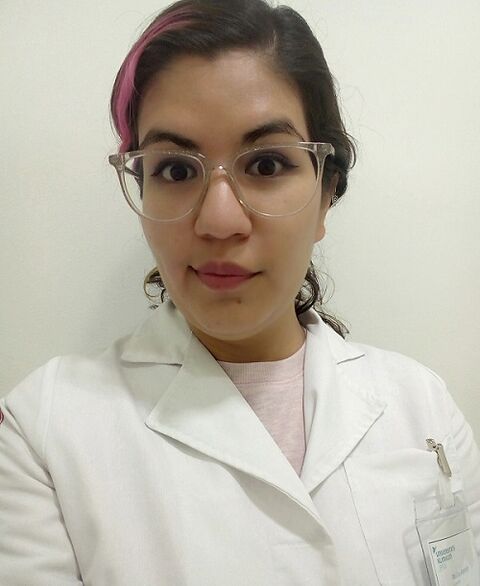
Topic
Our research focuses on three interrelated areas of investigation:
The feto-maternal communication mediated by extracellular vesicles and microRNAs. The maternal immunological adaptation and brain remodeling and how these persist after birth. And the effect of pollutants on maternal health and pregnancy outcomes.
We conduct studies that characterize the function of microRNAs on trophoblast, endothelial and immune cells. Our focus is on discovery of potential miRNA species that could be useful tools for the diagnostic and treatment of pregnancy-associated pathologies.
We work in collaboration with laboratories and research teams in Europe and America.
Background
A successful pregnancy depends on a precise interaction between trophoblast cells of fetal origin and maternal endothelial and immune cells. Approximately one third of all pregnancies are affected by disorders related with inappropriate vessel transformation and abnormal trophoblast invasion. In most of the cases, the causes and treatments remain elusive.
MicroRNAs (miRNAs) are a new class of non-coding RNAs which are associated with the control of important cellular processes including proliferation, invasion and differentiation. Human placenta exhibits a tissue-specific miRNA expression profile which dynamically changes throughout pregnancy and whose dysregulation is found in pregnancy pathologies. Trophoblast cells secrete Extracellular Vesicles (EVs) into the maternal bloodstream, and their content resembles those of their origin cells.
We hypothesize that trophoblast cells communicate with maternal cells by release of EVs containing placental miRNAs. Levels of EVs and miRNAs may be altered in pregnancy disorders having the potential to serve as a non-invasive diagnostic tool.
Members

AG Morales

AG Morales

AG Morales


AG Morales

AG Morales

Open positions
Promotionsstipendium
Die Else Kröner-Promotionskollegs Jena School for Ageing Medicine bietet ein monatliches Promotionsstipendium über 1000€ für 1 Jahr.
Wir suchen hochmotivierte Studierende,
- der Human- und Zahnmedizin ab dem fünften Fachsemester
- mit großem Interesse an einer medizinischen Promotion im Bereich der Altersmedizin
- die sich für zwei Semester vom Studium zur Arbeit am wissenschaftlichen Projekt beurlauben lassen
- die sich zur regelmäßigen Teilnahme am Ausbildungsprogramm der JSAM verpflichten
- die sich durch selbstständiges Arbeiten und ein hohes Maß an Eigeninitiative auszeichnen
zum Thema: Einfluss auf plazentare EVs auf mütterliche Gehirnzellen
Die meisten Frauen werden mindestens einmal im Leben schwanger. Unbekannt ist aber, wie sich dieser Prozess auf ihr Gehirn auswirkt und welche Veränderungen vorübergehend oder dauerhaft sind. Die physiologische Schwangerschaft wurde mit einem postpartalen Verjüngungseffekt des Gehirns der Mütter in Verbindung gebracht, aber auch mit einer lang- anhaltenden Abnahme der Hirngröße. Darüber hinaus stellt Präeklampsie, eine gefährliche Komplikation der Schwangerschaft, ein Risiko für die Alzheimer-Krankheit und neurologischen Komplikationen dar. Die Mechanismen der Kommunikation zwischen Plazenta und Gehirn sind unklar, und wir vermuten, dass die extrazellulären Vesikel (EVs) das fehlende Bindeglied sein könnten. In diesem Projekt wird ein Modell der Blut-Hirn-Schranke (BHS) in einem mikrofluidischen Biochip eingesetzt, um die Auswirkungen auf die Struktur der BHS und die Funktion der Nervenzellen zu untersuchen, die durch physiologische und pathologische Plazenta-EVs verursacht werden. Dieses Projekt kann dazu beitragen, die zerebrovaskulären Beeinträchtigungen der Präeklampsie und deren Auswirkungen auf die Gehirnalterung der Mutter zu verstehen.
Bitte kontaktieren Sie bei Interesse bis 15.01.2021
Dr. Diana Maria Morales Prieto, AG Morales
Masterarbeit
We investigate functions of microRNAs on trophoblast, endothelial and immune cells. The focus is on identification of potential miRNA species that may be useful tools for diagnostics and treatment of pregnancy-associated pathologies. We work in collaboration with laboratories and research teams in Europe and America.
What we offer:
- Modern research facilities in a university hospital
- Supervision of master thesis. As student there is a possibility to participate in activities such as workshops and congresses.
- Internship up to 16 months in our laboratory in Jena, Germany
- Structured research and supervision
What we look for:
- Highly motivated and qualified master students
- Students with interest in immunology and molecular biology willing to join our team
- Applicants must possess good English language skills
Please contact:
Dr. Diana Maria Morales Prieto, AG Morales
Alumni
o Hephzibah Winter, cand. M.Sc.
o Lazaro Pereira, Dr. med.
o Michael Schönleben, Dr.med.
o Ruby Gutierrez, Dr. med.
o Jose Martín Murrieta Coxca, PhD
o Daniel Fabig, cand. Dr. med.
o Ivan Dimitrov, cand. Dr. med.
o Yvonne Heimann, M.Sc.
Current projects:
DFG project 2021/2022
Successful pregnancy relies on an intricate communication between fetal trophoblast and maternal immune cells that allows remodeling of uterine vessels, establishment of maternal tolerance and protection of mother and fetus from pathogens. This communication can be carried out by release of extracellular vesicles (EVs) that harbor among others proteins and nucleic acids from the parental cell. The microRNA (miRNA) cargo of EVs received great attention because of the potential to modify gene expression post-transcriptionally in the recipient cells.
We demonstrated previously that trophoblast cells express a singular miRNA profile which includes species that are almost uniquely expressed by the placenta tissue. These miRNAs regulate cellular processes of trophoblast cells in vitro such as cell proliferation and invasion, as well as their ability to interact with endothelial cells. In a second step, we investigated the miRNA profile of placenta tissue in normal and pathological pregnancies namely preeclampsia (PE), intrauterine growth restriction (IUGR) and placenta accreta syndrome (PAS). Altered miRNA species were identified and associated with intracellular signaling pathways and cellular functions. Thereafter, cell lines modeling singular immune cell populations were treated with trophoblast-derived EVs containing abnormal levels of placental miRNAs. We confirmed that placental miRNAs, including those dysregulated in pathological settings, are secreted via EVs by trophoblast cells and that after internalization by immune cells, affect gene expression therein.
In vivo, variations in decidual immune cells facilitate the establishment of pregnancy, whilst hematological changes in the peripheral blood are needed to maintain surveillance and to recognize and respond to invading microorganisms. These immune responses are mediated by glycoproteins on the surface of cells, whose expression could be modified by uptake of vesicular proteins carried by EVs. We hypothesize that the proteome of placental-derived EVs (PDEVs) is transferred to immune cells and shapes their function specifically through modification of their glycoprotein expression.
To prove this, PDEVs will be obtained by ex vivo placenta perfusion. Two populations of PDEVs will be isolated by ultracentrifugation and then characterized in terms of size, concentration and protein content by proteomic analysis. Peripheral mononuclear blood cells (PMBCs) will be isolated from whole blood samples and PDEV uptake will be assessed by flow cytometry and confocal microscopy. Finally, proteomic analyses of recipient cells will be carried out with special regard to glycoprotein identification followed by a bioinformatics analysis for identification of altered proteins and their associated pathways.
DFG Project 2014-2021
Projektbeschreibung
Trophoblastzellen sind für die Implantation der Frucht in das mütterliche Gewebe und für den Umbau der mütterlichen Spiralarterien verantwortlich. Schwangerschaftspathologien wie Präeklampsie (PE) und intrauterine Wachstumsretardierung (IUGR) sind häufig mit nicht ausreichender Blutgefäßtransformation verbunden, während erhöhte Trophoblastinvasion in Placenta accreta (PA) beobachtet wird. Die Regulation zahlreicher Trophoblastfunktionen ist exakt kontrolliert durch intrazelluläre Moleküle, einschließlich microRNAs (miRNAs).Wir haben in früheren Arbeiten berichtet, dass die drei wichtigsten plazentaren miRNA-Cluster im Schwangerschaftsverlauf einer Kinetik unterliegt. Diese sind das Chromosom 14 MicroRNA Cluster (C14MC), C19MC und miR-371-3-Cluster. Im vorangegangenen Projekt wurde nachgewiesen, dass die Expression ausgewählter C14MC und C19MC miRNAs in gesunden und pathologischen Plazenten unterschiedlich ist, was auf ihr Potenzial als diagnostische Marker hindeutet. Anomale Expression von einigen dieser miRNAs scheint zu eingeschränkter Trophoblast-Proliferation, -Invasion und -Angiogenese führen, was die Assoziation dieser miRNAs mit der Entwicklung von Schwangerschaftspathologien unterstreicht.Wir und andere Autoren berichteten, dass Trophoblastzellen extrazelluläre Vesikel (EVs) in den mütterlichen Blutkreislauf sezernieren. Diese Vesikel enthalten plazentare miRNAs in ähnlichen Konzentrationen wie die Ursprungszellen. Die Funktion dieser Vesikel ist großenteils unklar, aber eine weitgehend akzeptierte Theorie sieht diese EVs als Vehikel einer Zell-zu-Zell-Kommunikation zwischen entfernten Zellen. Wir vermuten, dass Trophoblastzellen durch Freisetzung von EVs mit mütterlichen Immunzellen kommunizieren, insbesondere mit uterinen Natürlichen Killer (uNK) und T- Zellen. Des weiteren erwarten wir, dass trophoblastäre EVs in pathologischen Situationen veränderte miRNAs Konzentrationen enthalten, welche die Funktion derer Empfängerimmunzellen beeinflussen können. Ziel dieses Projektes ist, diese Hypothese zu prüfen. Hierzu sollen mütterliche Immunzellen mit trophoblastäten EVs, die physiologische oder pathologische miRNA Level enthalten, behandelt und deren zellulären Funktionen analysiert werden. Durch qPCR Arrays sollen weitere dysregulierte miRNAs in Plazentaproben von Patientinen mit PE, IUGR oder PA identifiziert werden. Danach werden trophoblastäre Zelllinien transfiziert, um EVs zu produzieren, deren miRNA Expression die von ausgewählten Pathologien simuliert. Die uNK und T-Zellen (primäre und Zelllinien) werden mit den isolierten EVs kultiviert und wichtige Zellfunktionen sowie die Sekretion von Cytokinen, Adhäsionsmolekülen und Chemokinrezeptoren analysiert. Schließlich soll eine in silico Analyse der zugeordneten Signalwege durchgeführt werden, um ein umfassendes Modell der Zell-zu-Zell-Kommunikation zwischen Trophoblast- und Immunzellen in physiologischen und pathologischen Situationen zu erstellen.
IZKF Funding 2019-2022
As part of the program "Promotion of Women in Science", the medical faculty promotes the scientific careers of women at Jena University Hospital.
Dr. Diana Morales received an extension for her project on "Effects of physiological and pathological trophoblast-derived extracellular vesicles on the blood-brain-barrier and microglia", which has been funded since 2019, from June 01, 2021 to June 30, 2022.
Summary
During pregnancy, biochemical and structural changes in the brain adapt maternal physiology and behavior to ensure offspring survival. Remarkably, little is known about the molecular and cellular mechanisms that govern these processes and how they are influenced by pregnancy pathologies. Placental cells release extracellular vesicles (EVs) into the maternal blood as a mechanism of maternal-fetal communication. Although evidence shows that placental EVs mediate immune tolerance and cardiovascular adaptations in the maternal organism, their functions in the nervous system remains to be investigated. We hypothesize that placental EVs induce changes in the blood brain barrier (BBB) and modulate microglia cell responses. Moreover, these EVs may be the missing link between the placenta and neurologic manifestations of pre-eclampsia. A 3D BBB model in a microfluidic biochip will be employed to investigate BBB structure and properties under the effects of healthy and pre-eclamptic placental EVs. Additionally, mechanisms of placental EV uptake by microglia cells and their activation will be investigated. This proposal strengths a new research field in our group focused on understanding the biological mechanisms involved in the communication between placenta and brain in normal and pathological human pregnancies.
PhD project JSAM 2020/21
Einfluss auf plazentare EVs auf mütterliche Gehirnzellen
Die meisten Frauen werden mindestens einmal im Leben schwanger. Unbekannt ist aber, wie sich dieser Prozess auf ihr Gehirn auswirkt und welche Veränderungen vorübergehend oder dauerhaft sind. Die physiologische Schwangerschaft wurde mit einem postpartalen Verjüngungseffekt des Gehirns der Mütter in Verbindung gebracht, aber auch mit einer lang- anhaltenden Abnahme der Hirngröße. Darüber hinaus stellt Präeklampsie, eine gefährliche Komplikation der Schwangerschaft, ein Risiko für die Alzheimer-Krankheit und neurologischen Komplikationen dar. Die Mechanismen der Kommunikation zwischen Plazenta und Gehirn sind unklar, und wir vermuten, dass die extrazellulären Vesikel (EVs) das fehlende Bindeglied sein könnten. In diesem Projekt wird ein Modell der Blut-Hirn-Schranke (BHS) in einem mikrofluidischen Biochip eingesetzt, um die Auswirkungen auf die Struktur der BHS und die Funktion der Nervenzellen zu untersuchen, die durch physiologische und pathologische Plazenta-EVs verursacht werden. Dieses Projekt kann dazu beitragen, die zerebrovaskulären Beeinträchtigungen der Präeklampsie und deren Auswirkungen auf die Gehirnalterung der Mutter zu verstehen.
Else Kröner-Promotionskollegs Jena School for Ageing Medicine


